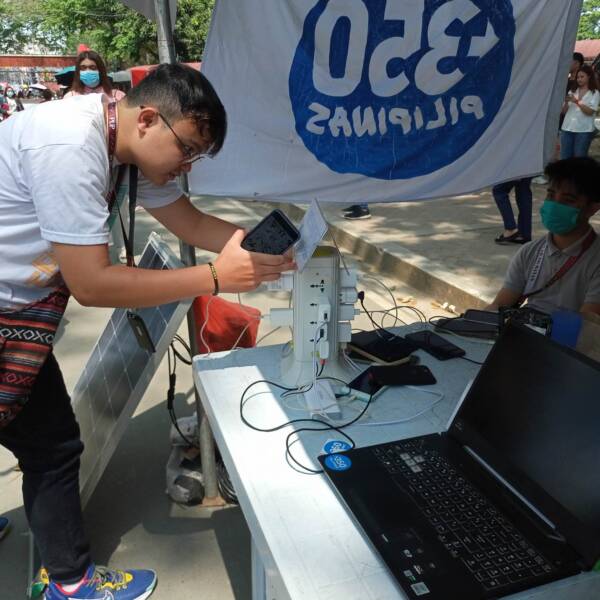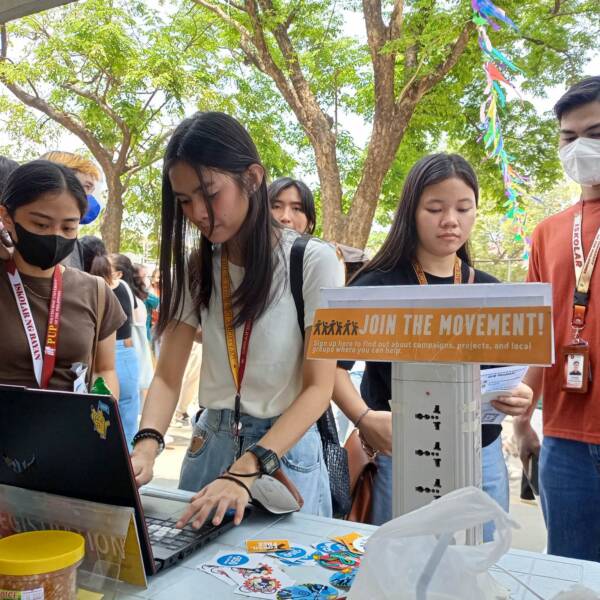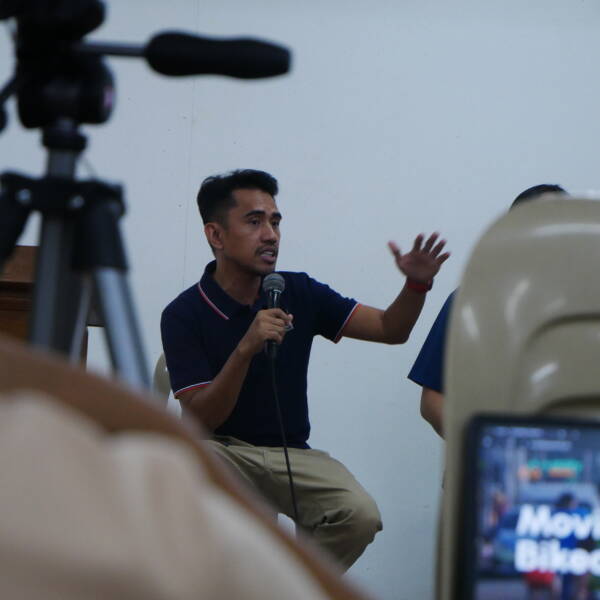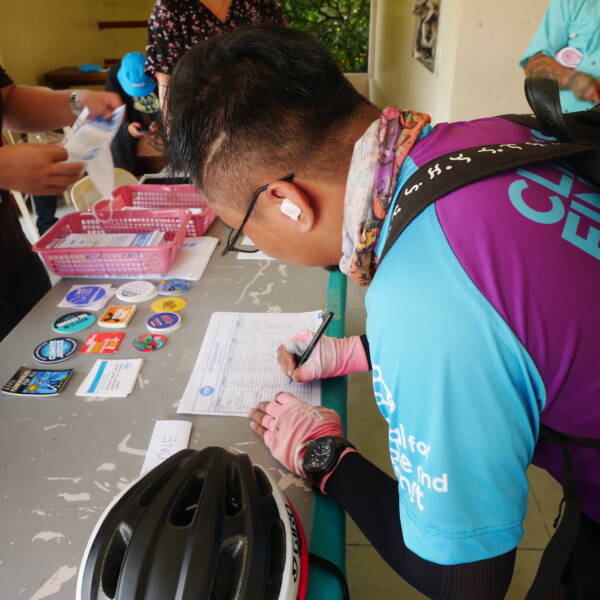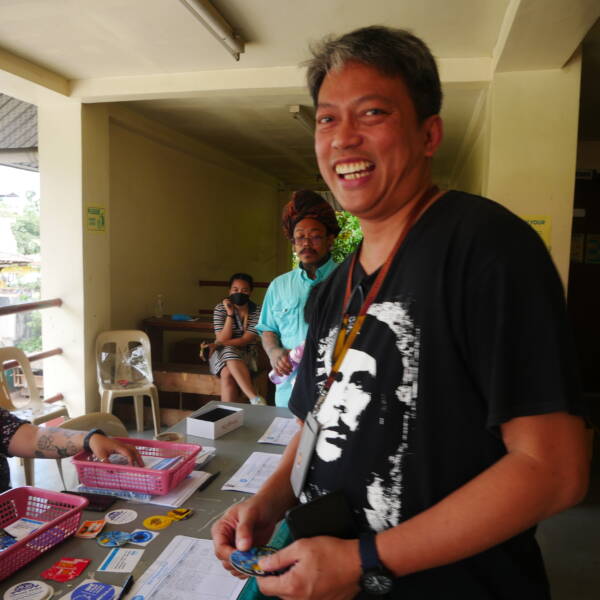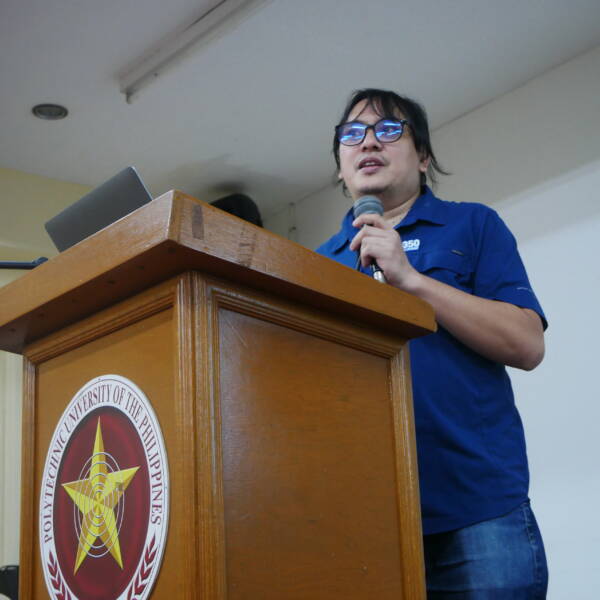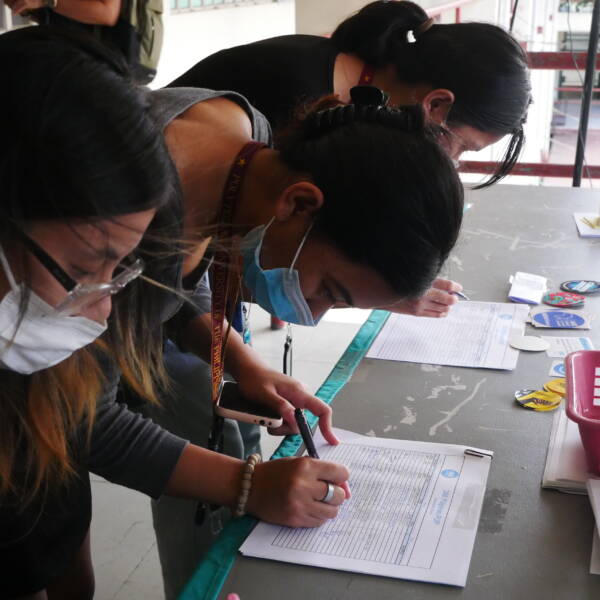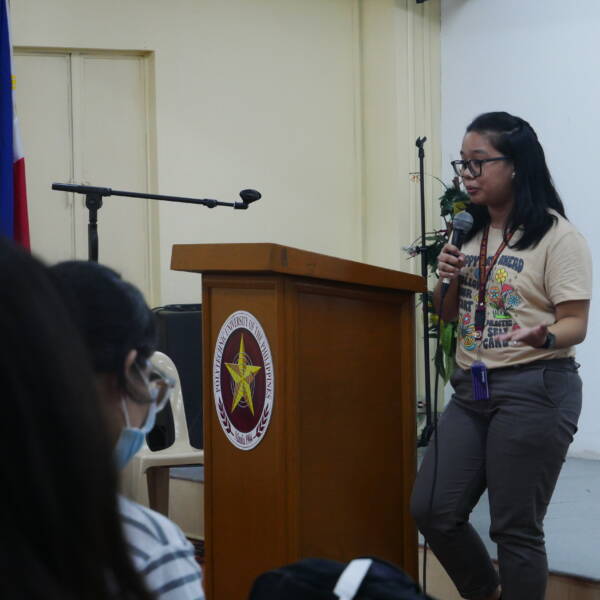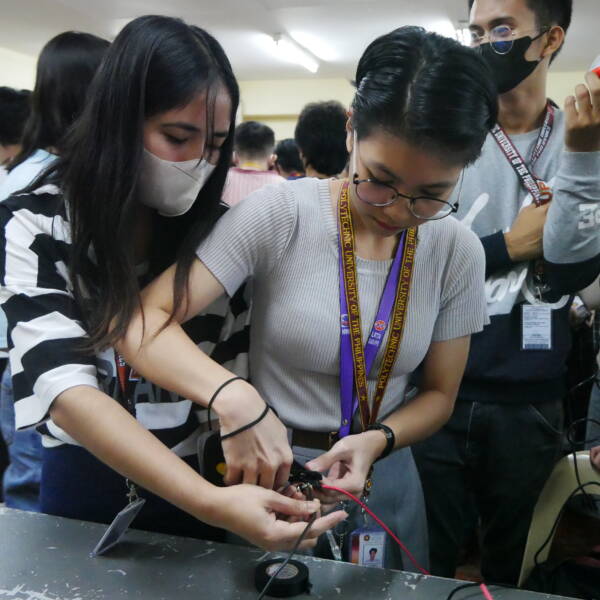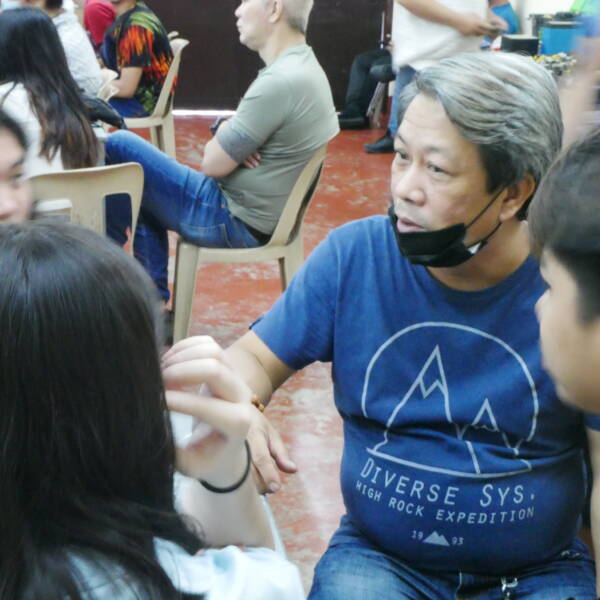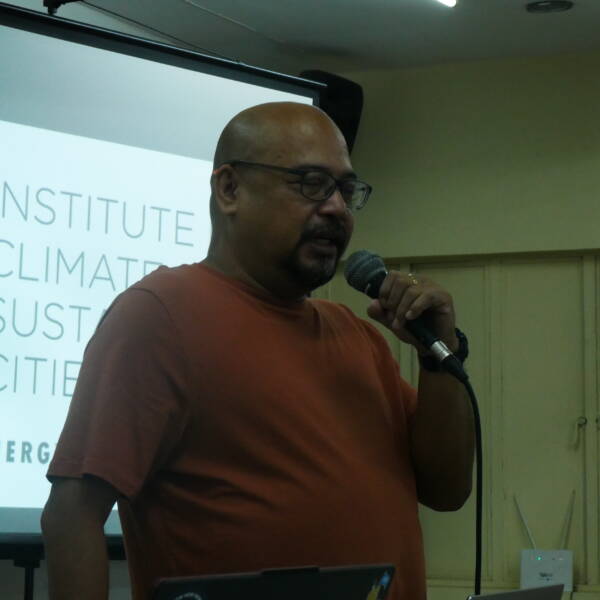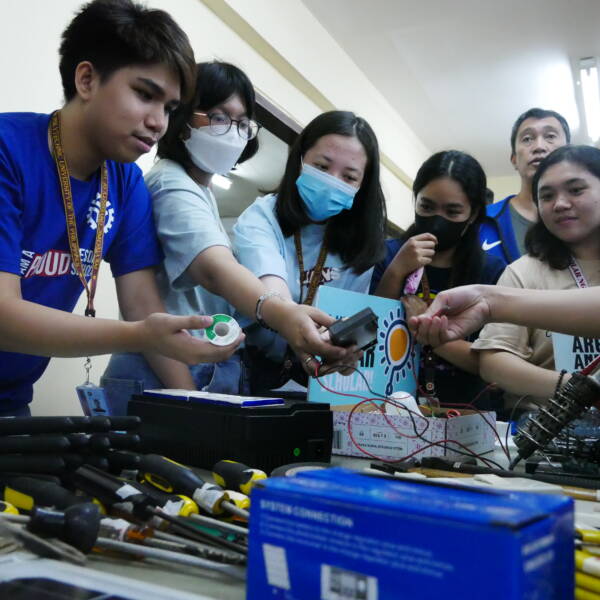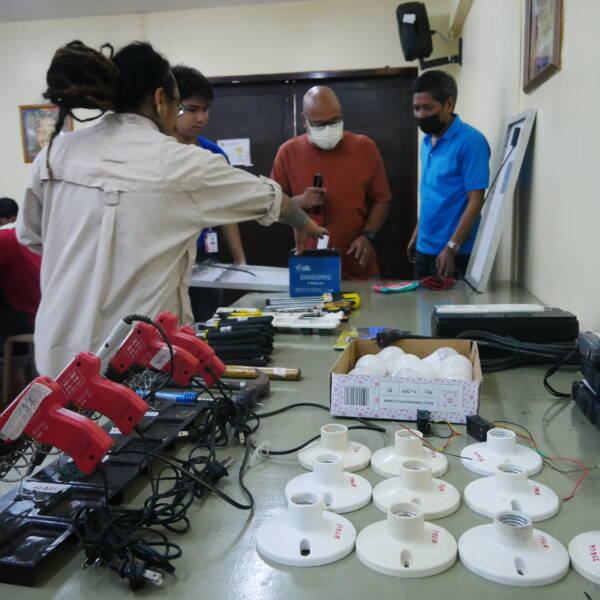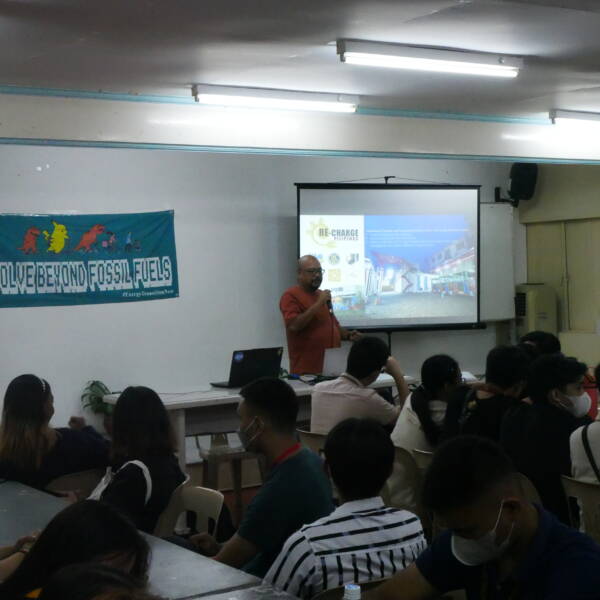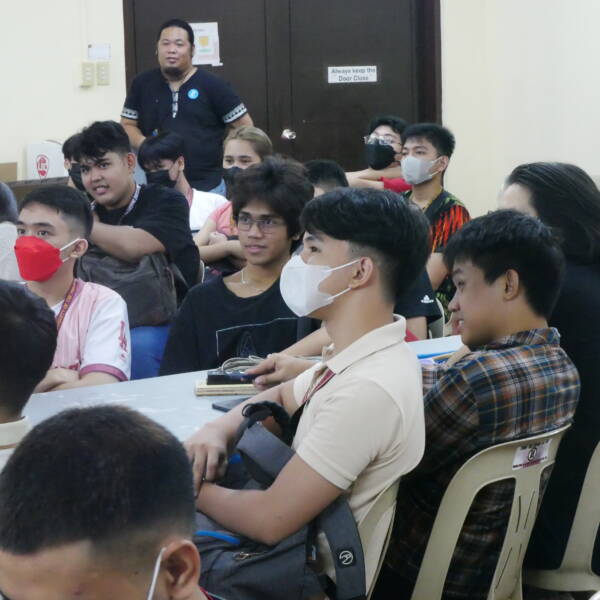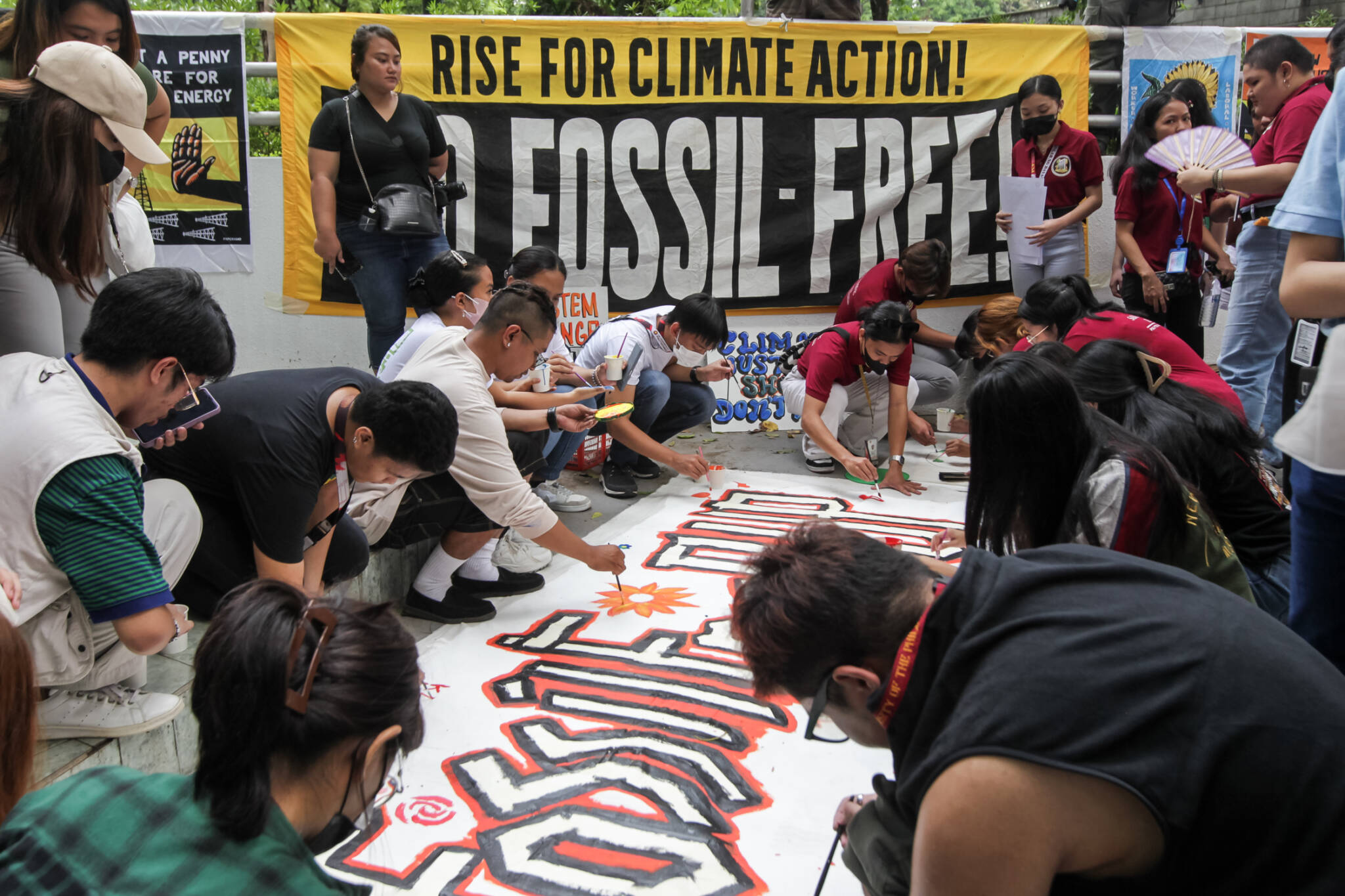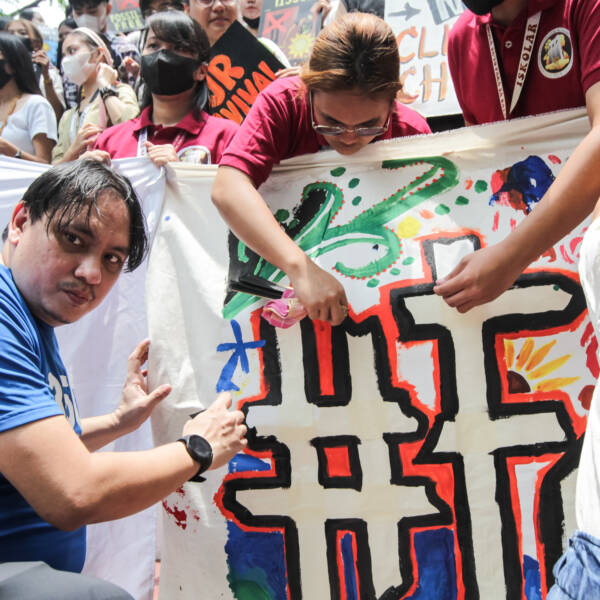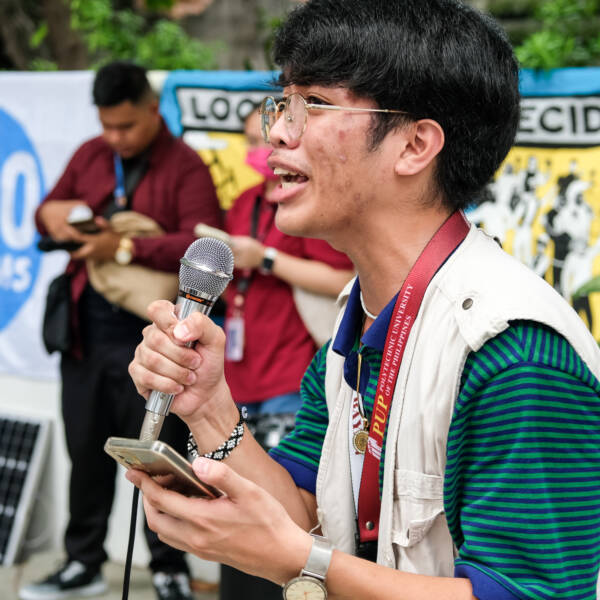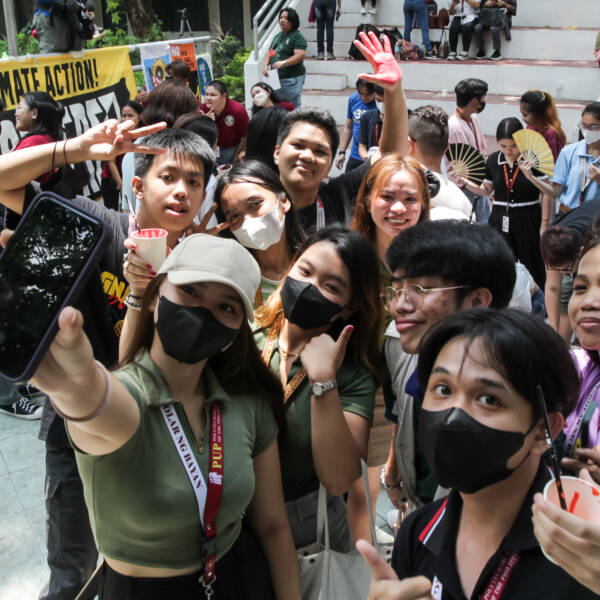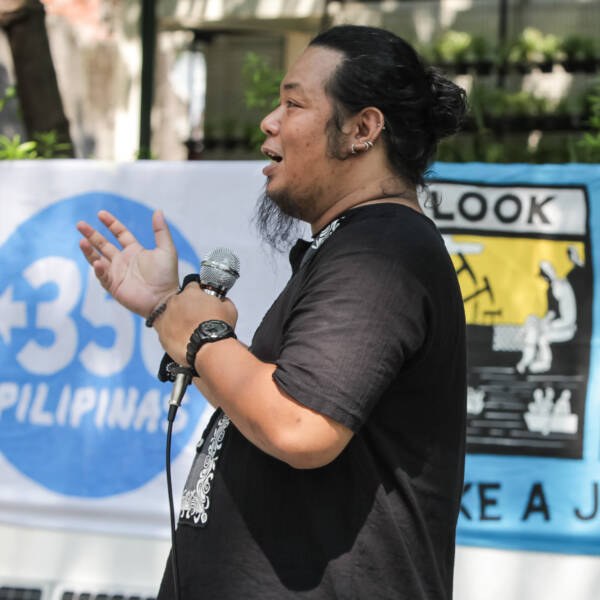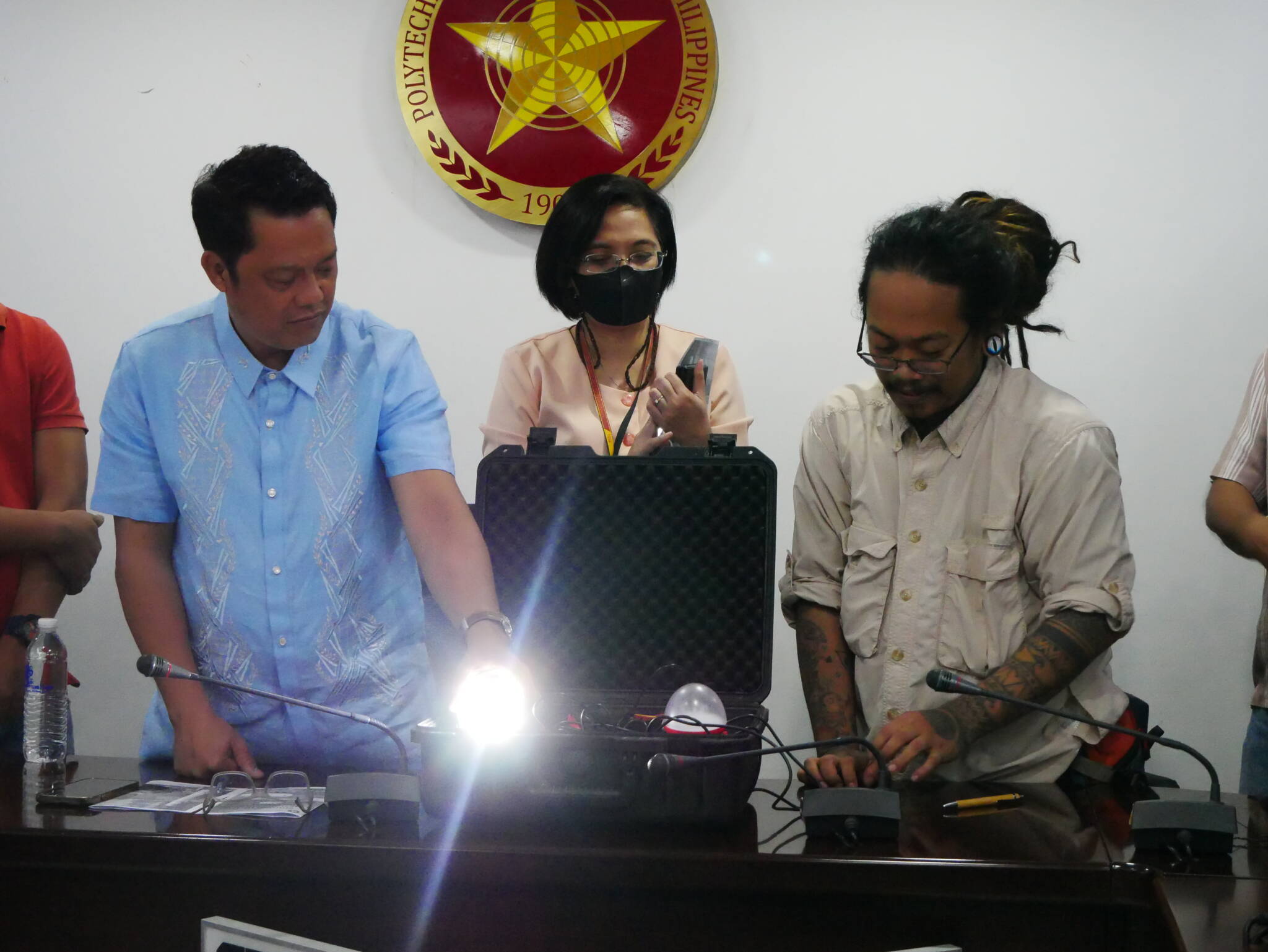From Curiosity to Action: PUP Community Embrace Climate Solution
These series of activities have brought us new experiences and wisdom towards campaigning climate action from the stories shared by people in the PUP community.
Nadia Cruz
To summarize the first quarter of 2023, we are filled with immense gratitude to the students, administrators, faculty, personnel, organizations, and the entire community of Polytechnic University of the Philippines (PUP) for their commitment into campus sustainability and utilizing community-based solutions for climate action.
In partnership with the PUP Center for Environment Studies, we launched several activities in the university and have given us diverse range of learnings as we participate in collaborative efforts that are geared towards campus decarbonization and into a #FossilFreePUP.
There is interest in renewable technology among students and employees
We jump started this year by setting up a Free Charging Booth at a Tanglaw Fest, an event led by students and organizations as the school semester begins.
Students showed curiosity and interest in renewable energy as we set up charger ports powered by the sun. Through simple conversations or “kwentuhan” while they charge their devices, we saw their interest in renewable technologies as these solar-powered charging ports have enabled the accessibility in renewable energy.
Their curiosity led to conversations such the importance of energy, climate, decarbonization, and how the PUP-community can be part of a broader climate action.
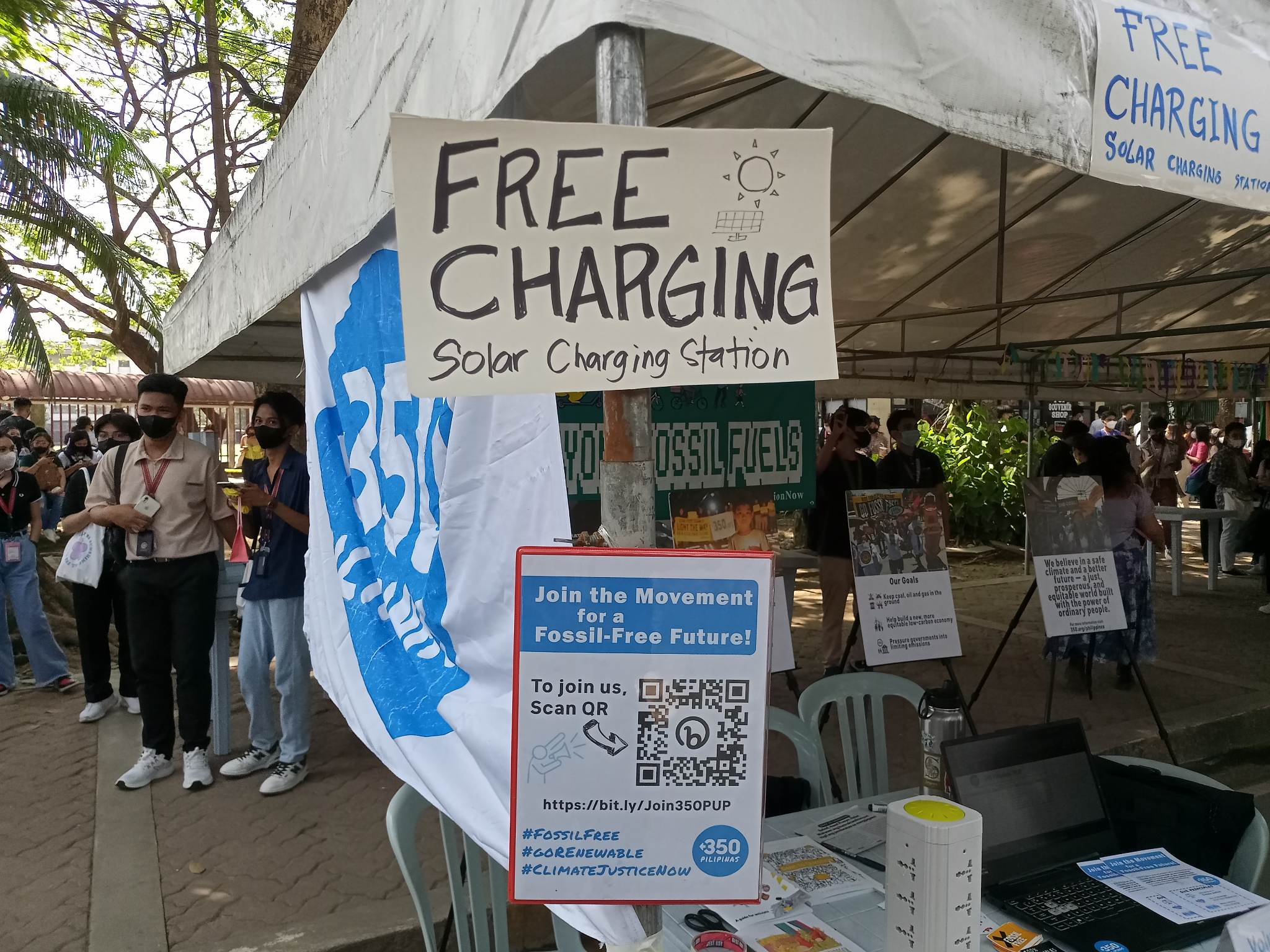
Solar charging station booth set up at PUP-Manila. Photo: Johnny Guarin
Organizing communities of practice centered around climate action and putting the enthusiasm of the youth sparked by the Global Climate Strikes into localized campaigns where displacement of carbon emissions can be measured and translated into savings made on energy consumption.
There is involvement in climate action
Secondly, we organized Fossil Free Future is Possible forum to present climate, energy, and mobility. With this, we shared the role of collective action in broader climate justice campaigns.
We previously learned that students and employees have already shown interest in solar power technology. Likewise, the forum expressed their involvement towards climate action.
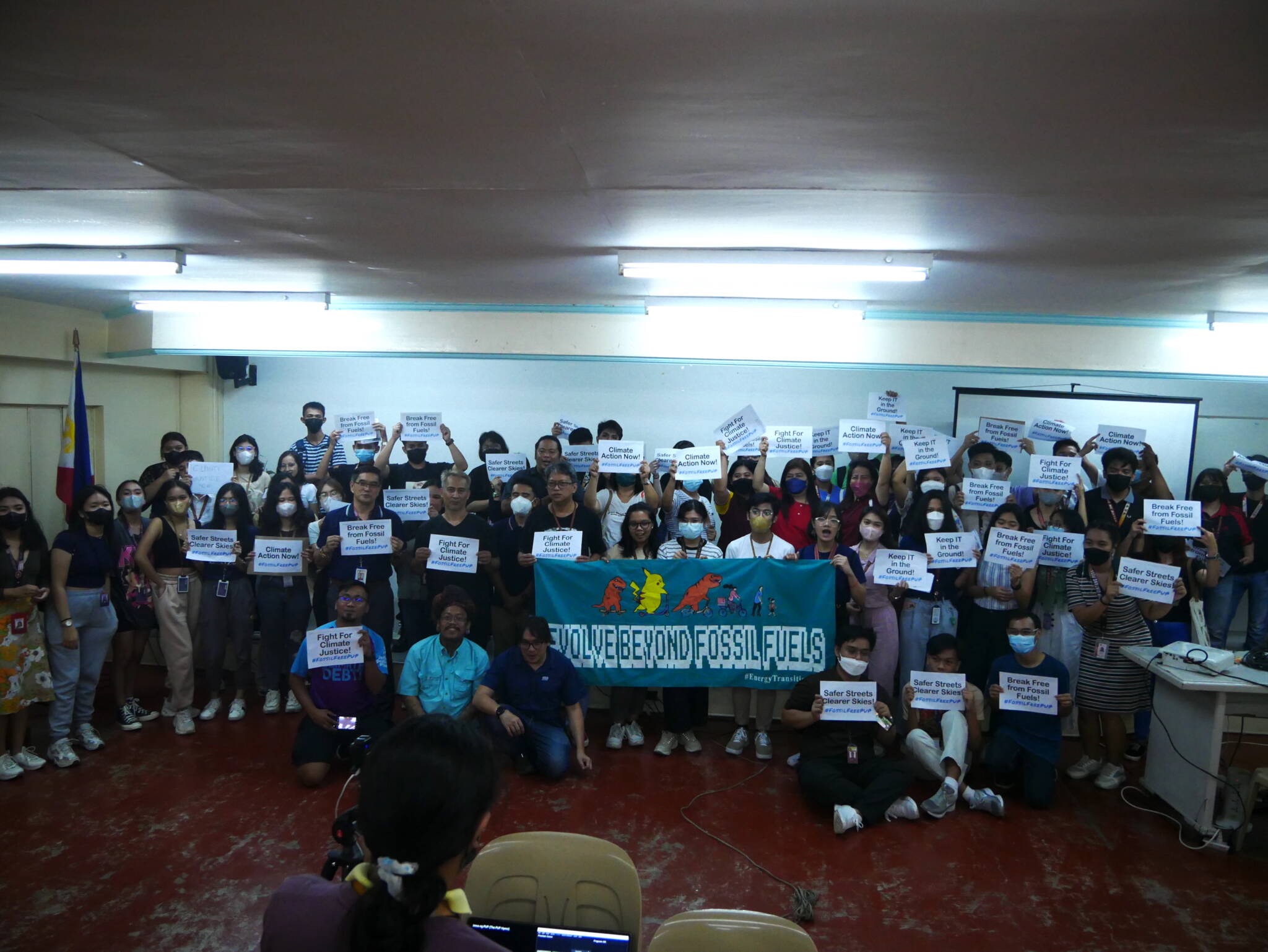
350 Pilipinas Secretariat, 350.org Asia Students from PUP-Manila, Youth organizations along with Center for Environmental Studies PUP, Agham Youth PUP , PUP College of Science Student Council, and PUP Institute of Technology Research and Extension. Photo: Johnny Guarin
The students and personnel learned that they have already been contributing to climate action in their own way by using active transport in their commute, minimizing electric consumption on their household, higlighting the youth, active transportation and solar technologies’ role in to decarbonization
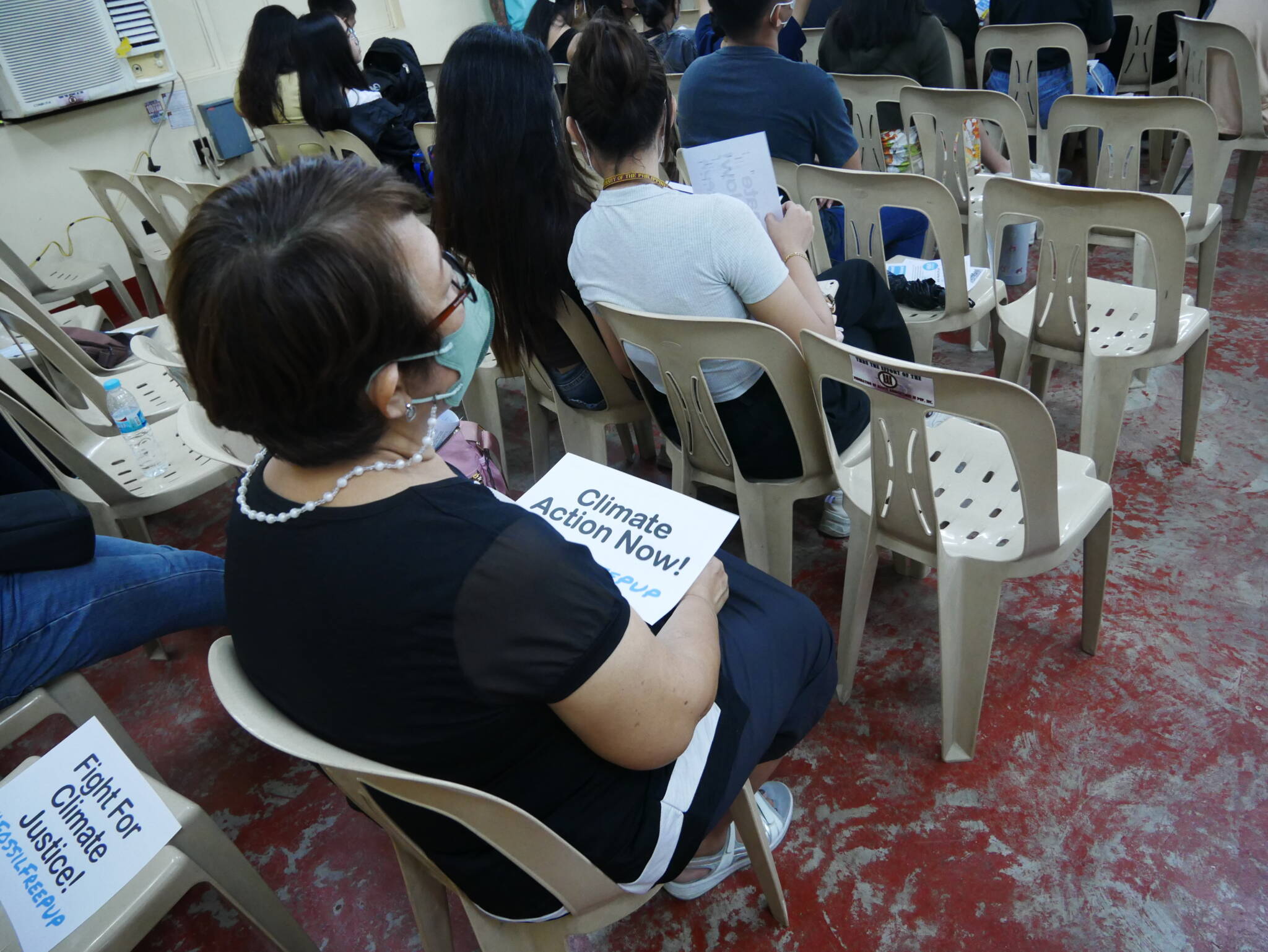
A forum attendee holding a Climate Action Now! Banner. Photo: Johnny Guarin
To tackle climate change, it is important to lead sustainable lives and hold regular educational discussions on the issue. It is also vital to engage with oppressed and marginalized groups, to be able to launch climate campaigns that respond to community needs, and promote sustainability based on justice and equity.
Because ultimately, climate action should also be about emancipation of the oppressed and marginalized from a cycle of victimization and ensuring their rightful place in shaping the future of our planet.
There is an abundance of skilled/professionals we can tap or maximize for climate action
We partnered with ICSC’s RE-Charge Pilipinas to share how a community-led solar technology system is therefore significant to ensure the sustainability of renewable energy projects through a CoRE Training Workshop as these systems should be owned and managed by the community, with materials that are accessible from nearby hardwares.
The one-day workshop enabled students to learn solar power technology and assemble basic set-up for PV technology.
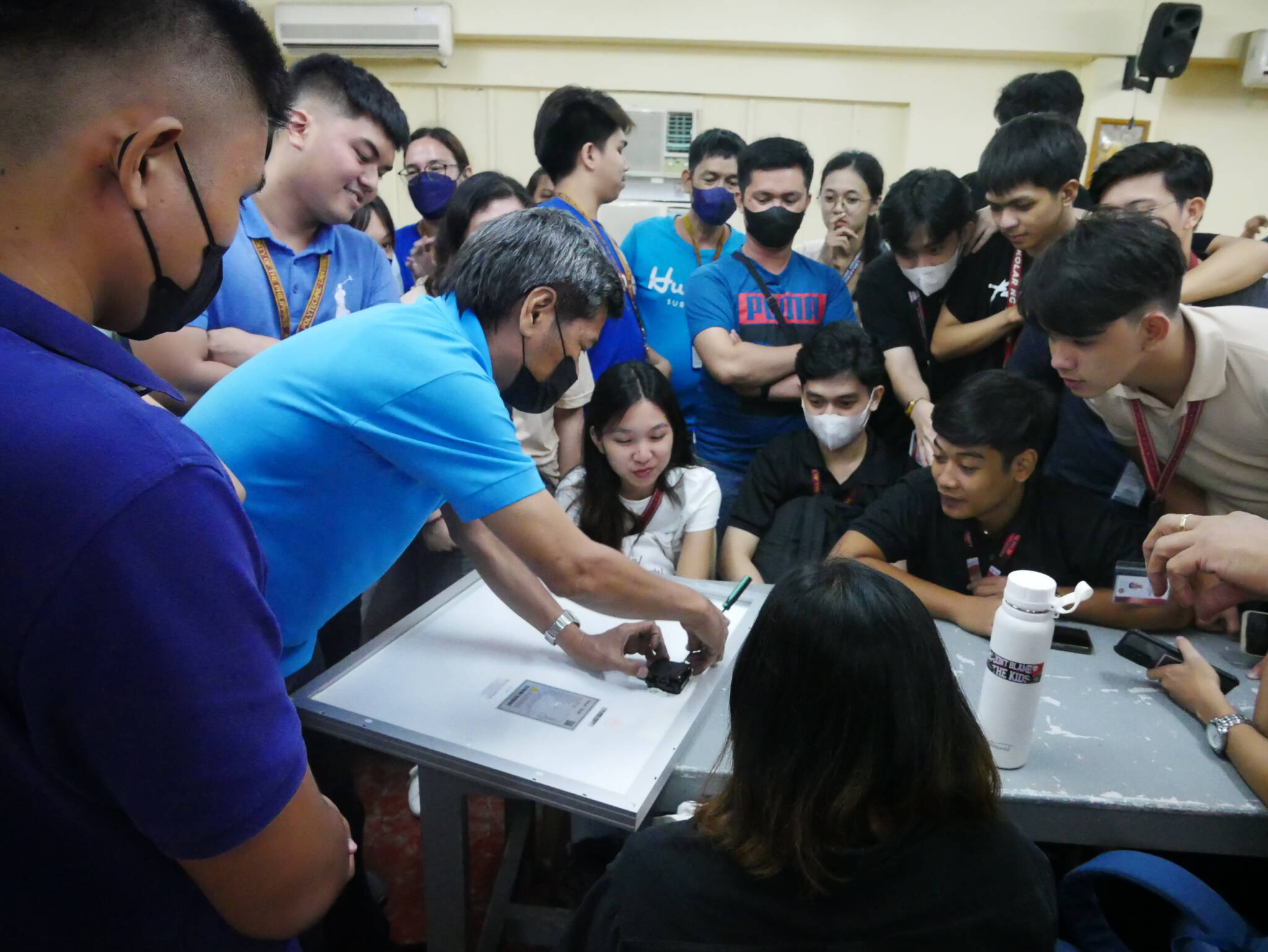
PUP administrator and students assemble a solar-powered system in the Community Renewable Energy (CORE) workshop. Photo: Johnny Guarin
We also learned how PV technology is incorporated with their curriculum, which showed great potential on the accessibility of gaining knowledge on renewable energy and could provide positive impacts in the climate through their practice
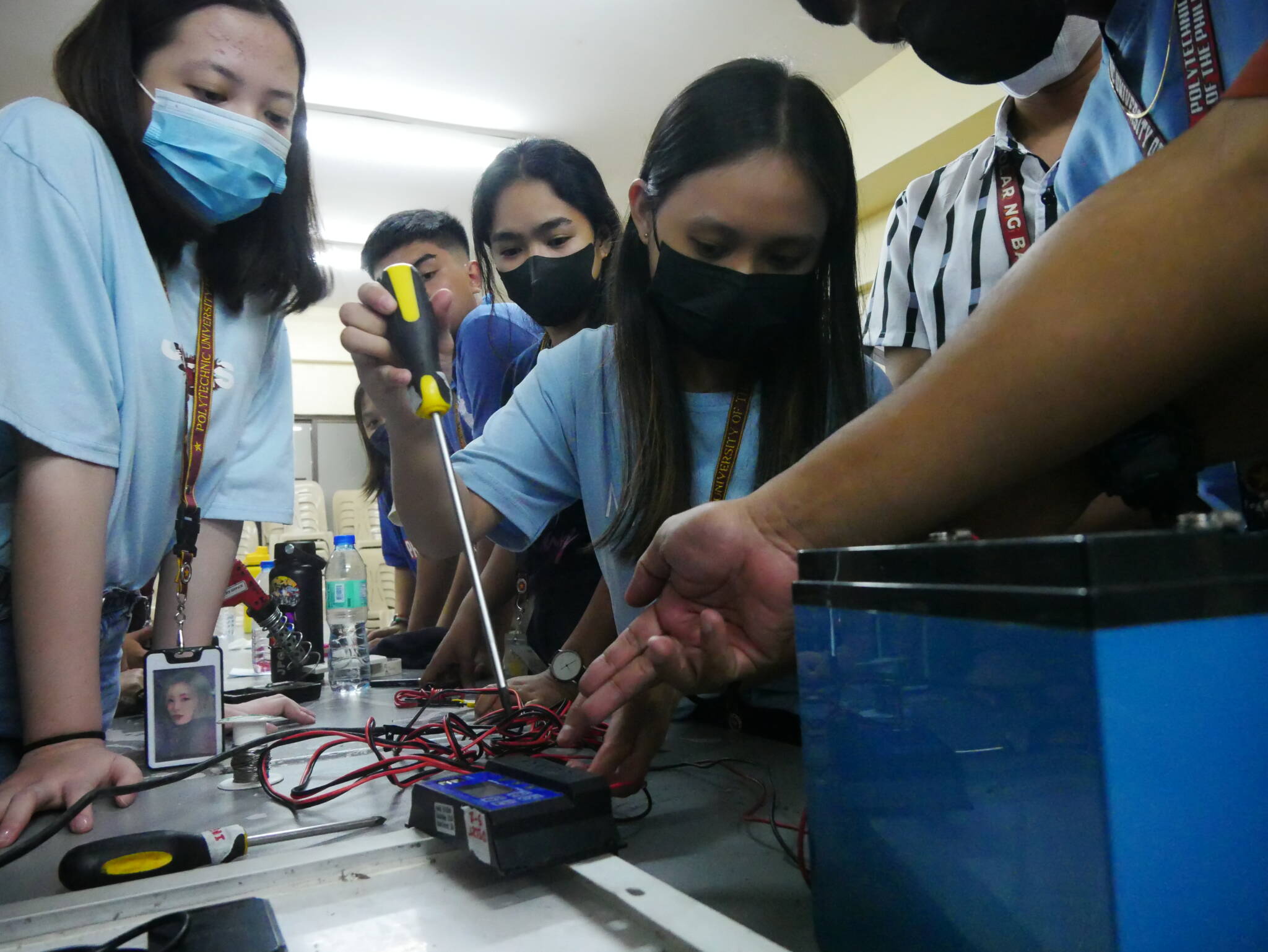
Students from PUP Institute of Technology were taught how to assemble the components during the workshop.Photo: Johnny Guarin
The training emphasized that these skills and knowledge can be utilized in helping the community, that these students who equipped with expertise are part of the abundance of the skilled professionals that we can maximize for climate action
There are ways to campaign on climate justice
We celebrated Earth Day 2023 through Artivism. Led by students and organizations in the university, they participated and shared their creative skills in painting, drawing, and poetry writing and performing.

Climate advocates and Polytechnic University of the Philippines (PUP) Community celebrate Earth Day with a call for #FossilFreePUP in Sta. Mesa, Manila. Photo: Leo M, Sabangan II.
Campaigns centered around climate justices can be in different forms, the enthusiasm and the creativity of the youth can be turned into campaigns that are centered towards climate actions
Students came together to raise awareness about crucial issues concerning our climate and environment through the spoken word. Featured below are the memorable lines they shared inspired by the pressing challenges we face today.
At the end of the gathering, we sang the PUP hymn, the line: “gagamitin ang karunungan, mula sayo para sa bayan” which translates to “using our knowledge learned from you towards the country” is a constant reminder to the oath to give back to the community.
There are communities in need for intervention
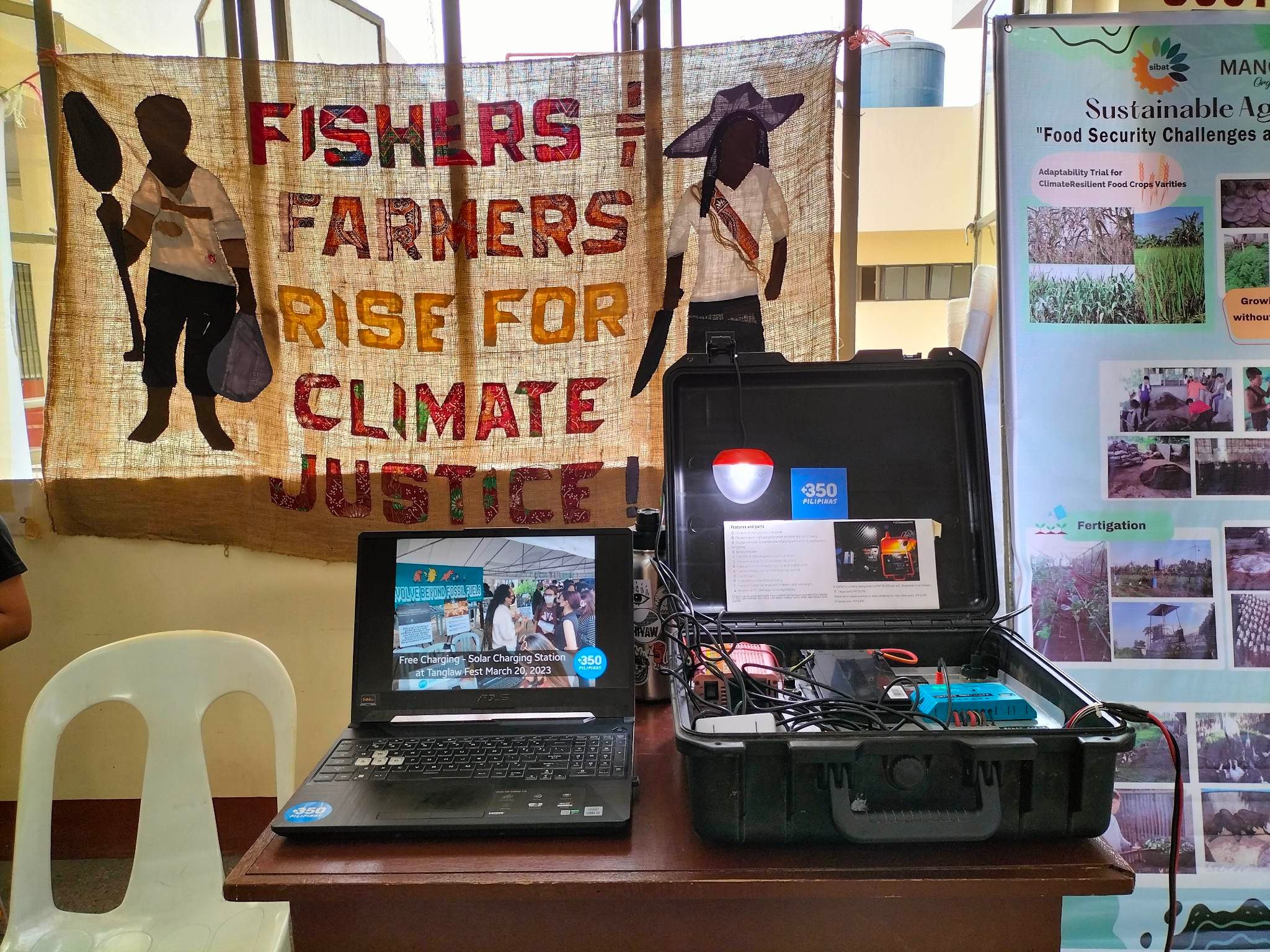
Our volunteers exhibited a solar power charging system called TekPak, a system developed by Typhoon Haiyan survivors. Photo: Fread De Mesa
We participated as an exhibitor at the Enhancing Technologies and Innovation for Grassroots Needs event held at the university. Organizations and institutions around the country tackled the solutions and projects that aid the community to address local power/energy challenges. One organization integrated renewable energy to address certain economic conditions in a fishing community
Solutions on decarbonization and shifting towards renewable energy are available, we learned that there are communities that are in need of intervention, interventions that are people-centered and community based solutions as we strive to help communities to transition into cleaner energy.
The collaboration between students, youth organizations, NGOs, and the academe sends a strong message that a collective effort is needed to transition to renewable energy and sustainable practices. It also inspires others to take part in building a greener and more sustainable future.
Our Memorandum of Agreement (MOA) signing with PUP is a testament that “There is a need for Partnerships with Academe, Institutions and Organizations to Strengthen Climate Actions”
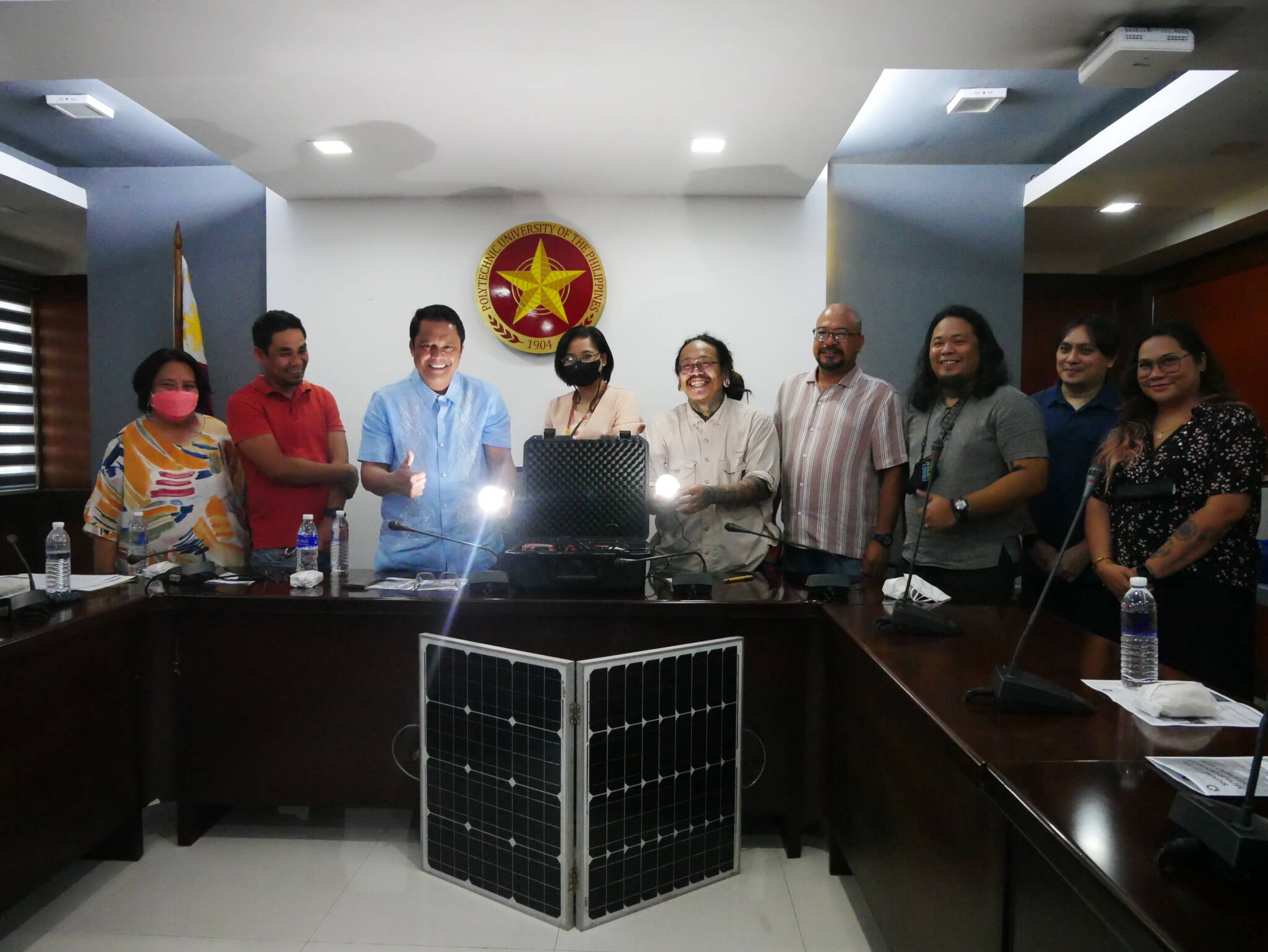
On April 19, 2023 Polytechnic University of the Philippines President Manuel M. Muhi with 350 Pilipinas Coordinator, Arfread De Mesa signed a memorandum of understanding for collaborative undertakings on climate action and renewable energy campaigns. Photo: Johnny Guarin
These fruitful activities lead us to learning that People are Ready, People Can, People Will Act for Climate Justice

